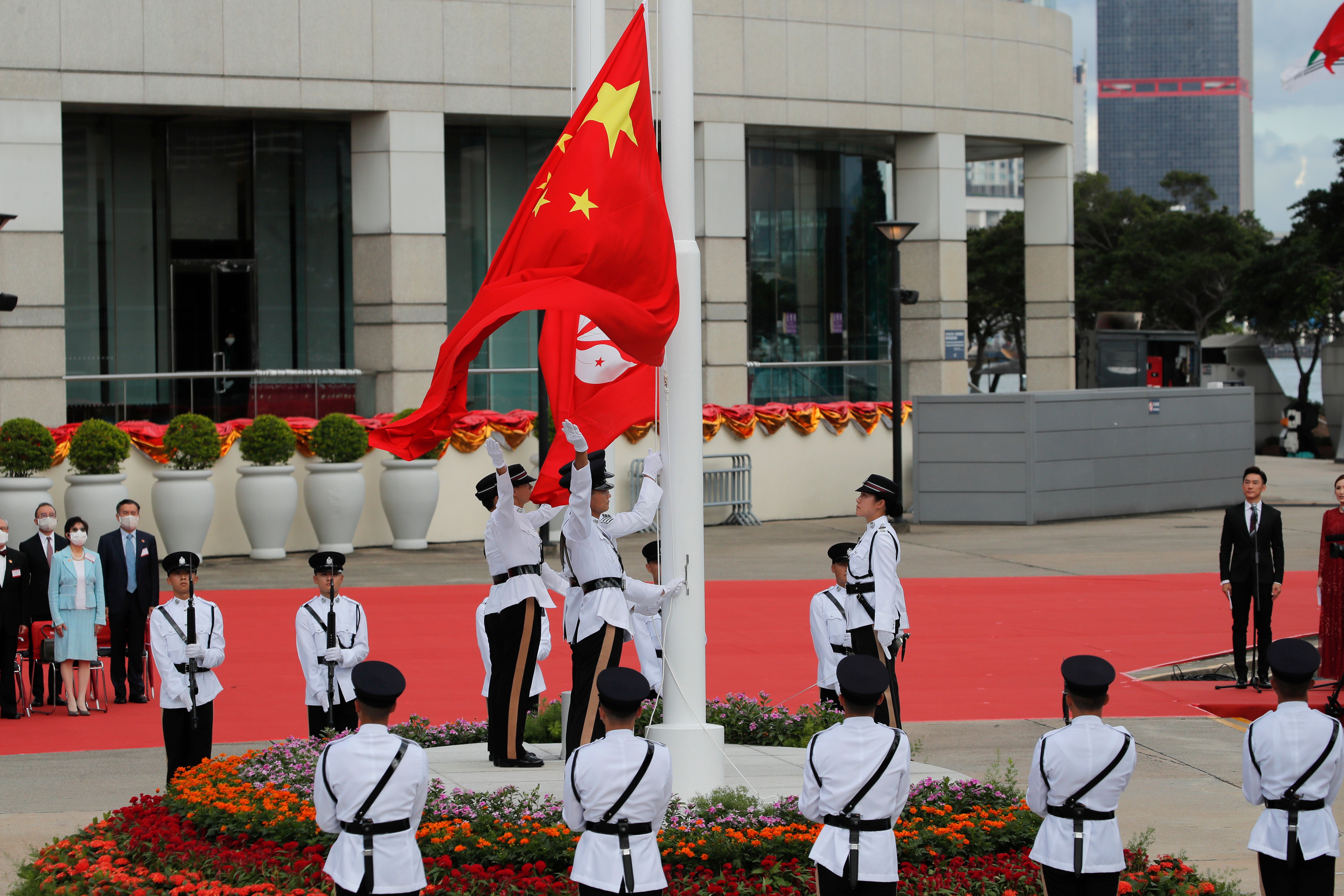After security law’s passage, Hong Kong marks China rule
HONG
KONG (AP) — Hong Kong’s leader strongly endorsed the new security law
China’s central government is imposing on the semi-autonomous territory
in her speech marking Wednesday’s anniversary of its handover from
colonial Britain.
“This decision was necessary and timely to maintain Hong Kong’s stability,” Carrie Lam said.
A
pro-democracy political party, The League of Social Democrats,
organized a protest march during the flag-raising ceremony preceding
Lam’s speech. About a dozen participants chanted slogans echoing demands
from protesters last year for political reform and an investigation
into accusation of police abuse.
The law’s passage Tuesday further
blurs the distinction between the legal systems of semi-autonomous Hong
Kong, which maintained aspects of British law after the 1997 handover,
and the mainland’s authoritarian Communist Party system. Critics say the
law effectively ends the “one country, two systems” framework under
which Hong Kong was promised a high degree of autonomy.
The law
directly targets some of the actions of anti-government protesters last
year, which included attacks on government offices and police stations,
damage to subway stations, and the shutdown of the city’s international
airport. Acts of vandalism against government facilities or public
transit can be prosecuted as subversion or terrorism, while anyone
taking part in activities deemed as secessionist would also be in
violation of the new law.
Under the law, those found guilty of
inciting secessionist, subversive, terrorist activities and colluding
with foreign forces could face life imprisonment if they are deemed
masterminds of such activities.
Schools, social groups, media
outlets, websites and others unspecified will be monitored and their
national security awareness will be raised, according to the text, while
China’s central government will have authority over the activities of
foreign non-governmental organizations and media outlets in Hong Kong.
It
says central government bodies in Hong Kong will take over in
“complicated cases” and when there is a serious threat to national
security. Local authorities are barred from interfering with central
government bodies operating in Hong Kong while they are carrying out
their duties, according to the text.
The legislation was mandated
under Hong Kong’s local constitution but an earlier attempt to pass it
in the city’s legislative body in 2003 was shelved in the face of
massive public opposition. Having lost patience, Beijing finally decided
to circumvent the Hong Kong legislature and have it passed Tuesday by
the Standing Committee of the National People’s Congress, China’s
rubber-stamp parliament.
President Xi Jinping signed a
presidential order putting the law into effect and it has been added to
the Basic Law, Hong Kong’s constitution.
The U.S. has already
begun moves to end special trade terms given to the territory. The Trump
administration has also said it will bar defense exports to Hong Kong
and will soon require licenses for the sale of items that have both
civilian and military uses, citing the possibility of them falling into
the hands of the People’s Liberation Army, which owes its loyalty to
China’s ruling Communist Party.
Congress has also moved to impose
sanctions on people deemed connected to political repression in Hong
Kong, including police officials, while Britain has said it could offer
residency and possible citizenship to about 3 million of Hong Kong’s 7.5
million people.
China has said it will impose visa restrictions on Americans it sees as interfering over Hong Kong.
The
law’s passage comes after Hong Kong’s legislature in early June
approved a contentious bill making it illegal to insult the Chinese
national anthem. Pro-China figures have also been pushing for more
“patriotic” education to be introduced into the curriculum in hopes that
will boost their identification with Beijing



